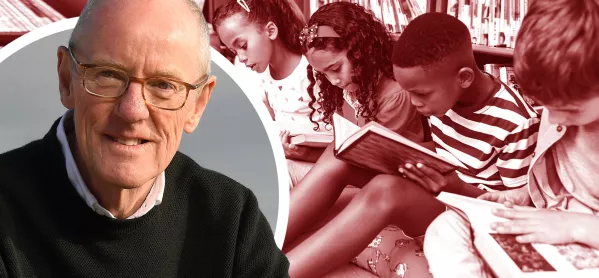The schools minister has said he will “certainly look” at this year’s key stage 2 Sats reading paper following reports that it left pupils in tears last week.
Nick Gibb said he had not yet seen the paper but would look at it next week when it becomes available.
School leaders claimed last week that the test had left even the most able pupils “broken” and in tears.
After concerns were raised about the difficulty of the reading test, a Department for Education (DfE) spokesperson said that the development of the tests “takes many years, with questions rigorously trialled with Year 6 pupils, and reviewed by education and inclusion experts to ensure appropriateness”.
The DfE told Tes that this year’s reading paper went through the same process as others in the past.
Mr Gibb was speaking to journalists at a media huddle for the 2021 Progress in International Reading Literacy Study (Pirls), where he was also questioned about the difficulty of the Year 6 Sats paper.
He said that the Standards and Testing Agency had trialled this year’s reading paper before the pandemic and tested it last year.
“They monitored the response of those children to the test to the questions; they found that 85 per cent enjoyed taking the test,” the minister said.
However, he added: “But we will look at this, I will certainly look at this because I know that there has been concern expressed by some schools, to make sure.”
“But we don’t want these tests to be too hard for children, that’s not the purpose. The purpose is to test the range of ability.”
Mr Gibb also faced questions on the teacher strikes and industrial dispute.
He said that there was “no question” that “we want a well-rewarded profession”.
He said that “principally” he understood why all four unions rejected the pay deal, as “they thought it wasn’t fully funded”.
However, Mr Gibb said that “actually it was fully funded” and he thought the problem was that the department had not “effectively communicated the fact that it was fully funded”.
“If teachers had understood that it was fully funded then I think the ballot might have gone a different way,” he said.
After a period of intensive talks in March, the DfE made all four teaching unions the offer of a £1,000 non-consolidated payment for 2022-23 and an average 4.5 per cent rise for 2023-24.
But school leaders voiced concerns about the affordability of the government offer after it was revealed that just 0.5 per cent of the overall 4.5 per cent pay award for next year, plus the £1,000 one-off payment for this year, would come through new funding.




